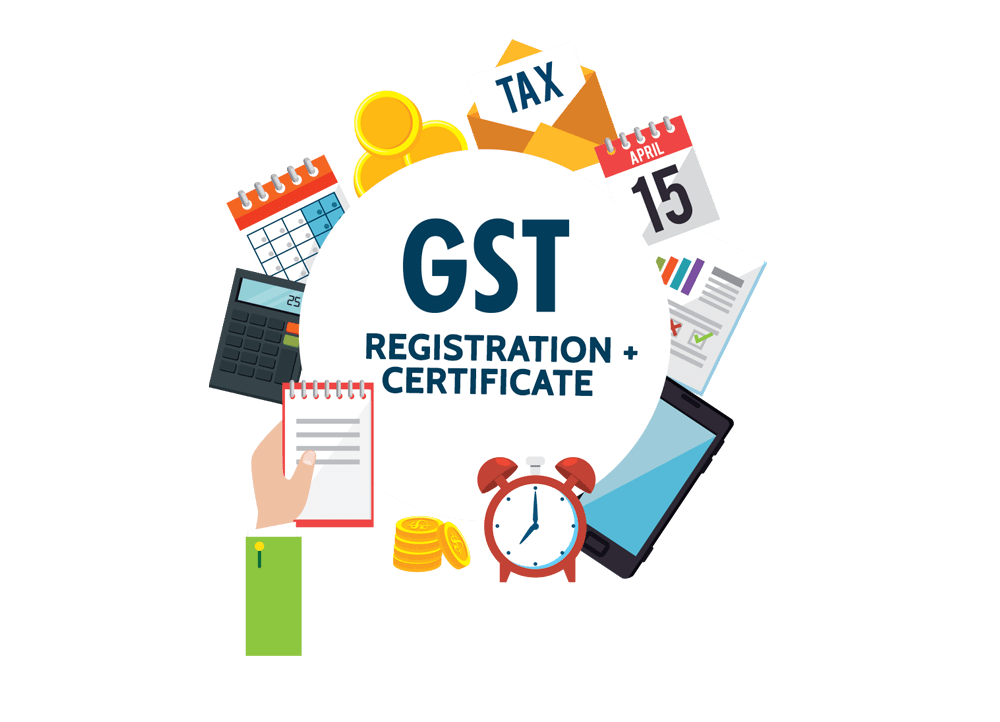Why Services Like the most effective GST Registration Services in Singapore
Why Services Like the most effective GST Registration Services in Singapore
Blog Article
From Beginning To End: The Ultimate Roadmap to GST Enrollment for Services Seeking Financial Security
Navigating the complexities of Item and Services Tax Obligation (GST) enrollment is a vital action for companies making every effort for financial stability. From comprehending the basic principles of GST to complying with post-registration standards, the procedure can appear daunting in the beginning glimpse. Nonetheless, damaging down the roadmap into manageable steps can enhance the registration trip for companies seeking to enhance their economic standing. Let's discover the essential components that make up this utmost roadmap and discover how each stage contributes to laying a strong foundation for economic success.
Comprehending GST Fundamentals
Diving right into the fundamental concepts of Item and Services Tax (GST) is important for getting a detailed understanding of its implications on businesses and the economic climate. Input Tax Credit Rating (ITC) is a substantial attribute of GST, allowing companies to declare debt for taxes paid on inputs, decreasing the general tax obligation problem. Recognizing the essentials of GST is crucial for companies to conform with tax obligation guidelines, handle their funds efficiently, and contribute to the nation's financial development by getting involved in a clear tax obligation system.
Qualification Requirements for Enrollment
To register for GST, businesses must meet specific qualification standards developed by the federal government. The main eligibility requirement is that any business involved in the supply of goods or solutions with a yearly accumulation turnover above the threshold limit set by the authorities have to register for GST. As of the current policies, the threshold restriction for GST enrollment is an annual accumulation turnover of 40 lakhs for companies operating within a state, with the exception of unique classification states where the limitation is 20 lakhs. In addition, specific businesses are required to sign up for GST regardless of their turnover, such as interstate providers, laid-back taxed persons, and businesses responsible to pay tax under the reverse cost system. It is essential for services to thoroughly evaluate their turnover and transaction kinds to determine their GST enrollment responsibilities accurately. Failure to register for GST when eligible can cause charges and legal consequences, making it important for companies to stick to the specified qualification requirements.
Records Required for Registration
Having actually fulfilled the eligibility requirements for GST registration, companies must now guarantee they have the requisite files in position to wage the enrollment procedure efficiently. The files required for GST registration commonly consist of proof of business constitution, such as partnership deed, registration certificate, or consolidation certificate for different kinds of services. Furthermore, organizations require to offer papers developing the major workplace, such as a rental agreement or power costs. PAN card of the organization, as well as the identity and address proof of promoters/partners/directors, are important for verification purposes. Bank account statements, along with terminated cheques or a duplicate of the bank passbook, are required to validate the economic information supplied throughout registration. Additionally, companies need to have digital signatures ready for the accredited notary. Ensuring all these records are arranged and easily available will accelerate the GST enrollment process, enabling companies to follow tax obligation guidelines effortlessly.
Step-by-Step Enrollment Process
Beginning the GST enrollment process includes a collection of structured actions to ensure a certified and smooth registration for companies. The primary step is to go to the GST website and load out the registration type with precise information of article the business entity. Following this, the applicant gets a Momentary Referral Number (TRN) which is used to resume the application process if it's not completed in one go.
Following, all called for documents as per informative post the checklist offered by the GST portal requirement to be posted. These documents normally include proof of organization identity, address and registration evidence of marketers, financial statements, and organization entity's frying pan card.

Post-Registration Conformity Guidelines

Conclusion
Finally, services looking for economic stability needs to comprehend the fundamentals of GST, satisfy qualification criteria, collect necessary records, adhere to the step-by-step registration procedure, and follow post-registration standards - Best GST registration services in Singapore. By sticking to these steps, companies can ensure compliance with tax obligation regulations and keep economic security over time
In addition, specific services are called for to register for GST regardless of their turn over, such as interstate suppliers, informal taxed individuals, and companies liable to pay tax obligation under the reverse charge system.Having actually fulfilled the eligibility standards for GST enrollment, companies should currently ensure they have the requisite records in location to continue with the registration procedure effectively. The records required for GST enrollment normally include proof of business constitution, such as partnership act, enrollment certificate, or consolidation certificate for different types of services. Additionally, services need to provide papers developing the principal location of business, such as a rental contract or power bill.Beginning the GST enrollment procedure involves a series of organized actions to ensure a seamless and compliant enrollment for services.
Report this page